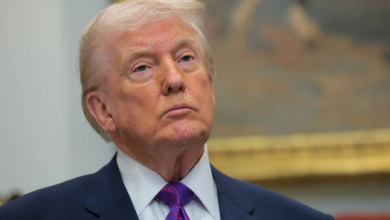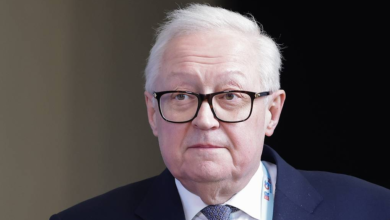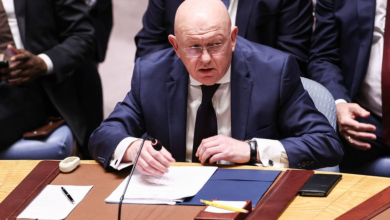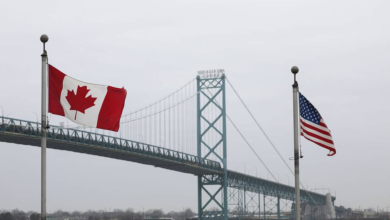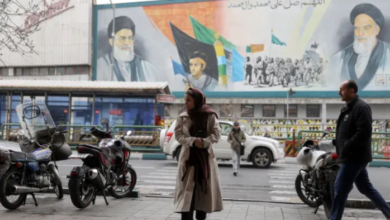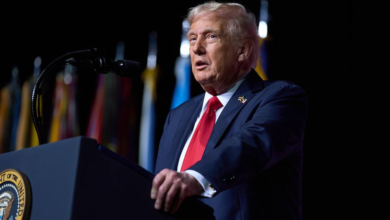The U.S. Playbook: How Military and Economic Influence Shapes Global Power
Military Influence and Resource Control

The United States has long maintained its global dominance through a combination of military interventions and economic strategies that prioritise American interests. Critics argue that this influence extends beyond security concerns and serves to control the world’s natural resources while ensuring the continued supremacy of the U.S. dollar. From the battlefields of the Middle East to the financial centers of Wall Street, Washington’s tactics have shaped global geopolitics for decades.
Military Influence and Resource Control Middle East: Oil and Wars of Influence
The 2003 U.S. invasion of Iraq was officially justified as an effort to dismantle weapons of mass destruction (WMDs), which were never found. However, many analysts believe the true motive was securing Iraq’s vast oil reserves. Post-invasion, major Western oil companies gained significant access to Iraq’s energy sector, raising questions about whether the war was fought for economic gain rather than national security.
Afghanistan: The Untapped Trillion-Dollar Mineral Wealth

The war in Afghanistan, framed as a counterterrorism effort, lasted two decades. However, a 2010 Pentagon report revealed the country’s vast, untapped mineral deposits—estimated to be worth over $1 trillion—including lithium, gold, and rare earth elements. Lithium, crucial for electric vehicle batteries and modern technology, is increasingly valuable in the global market. While the U.S. didn’t directly mine these resources, the long-term strategic control over the region’s mineral wealth remains a point of debate.
Africa: Proxy Conflicts and Mineral Control
Africa’s rich deposits of cobalt, coltan, and diamonds have made the continent a battleground for international influence. The U.S. has supported various regimes and rebel groups under the guise of promoting democracy and stability. However, many argue that these alliances serve economic interests, particularly in securing access to rare minerals crucial for technology and military industries. The Democratic Republic of Congo, rich in coltan (used in electronic devices), has witnessed prolonged instability, with U.S. companies benefiting from resource extraction through indirect means.
Economic Domination: The Power of the U.S. Dollar The Petrodollar System: A Global Monopoly on Oil Trade
Since the 1970s, the U.S. has ensured that oil is priced and traded in dollars, forcing nations to maintain large reserves of the currency. This system strengthens the U.S. economy, as demand for dollars increases worldwide. Any country attempting to bypass this system—such as Iraq under Saddam Hussein or Libya under Muammar Gaddafi—has faced U.S. military intervention, leading many to speculate that economic control is as much a factor in foreign policy as security concerns.
Sanctions as Economic Warfare
The U.S. frequently uses economic sanctions to cripple nations that challenge its dominance. Countries like Iran, Venezuela, and Russia have faced extensive sanctions targeting their banking systems and key industries. By controlling the global financial network, particularly the SWIFT payment system, Washington can isolate economies without firing a single shot.
– Iran: Sanctions have severely impacted Iran’s oil exports and economy, forcing it to seek alternative trade mechanisms with China and Russia.
– Venezuela: Economic restrictions on Venezuela’s oil sector exacerbated the country’s crisis, leading to shortages and political instability.
– Russia Following the annexation of Crimea and the Ukraine conflict, the U.S. imposed harsh sanctions, restricting Russia’s access to Western financial markets.
Global Financial Institutions as Tools of Control
The International Monetary Fund (IMF) and World Bank, heavily influenced by the U.S., often attach strict economic conditions to their loans. Critics argue these conditions favor American and Western corporate interests rather than the borrowing nations. Many developing countries find themselves in cycles of debt dependency, forced to implement policies that benefit foreign investors while limiting national sovereignty.
The U.S.-China Power Struggle: A New Economic Cold War? Rare Earth Elements: Securing Strategic Resources
China controls over 60% of the global supply of rare earth elements, essential for everything from smartphones to military equipment. The U.S. has expressed growing concerns over its reliance on Chinese exports, prompting efforts to develop alternative supply chains through partnerships with resource-rich nations in Africa, South America, and Australia.
Trade Wars and Economic Tensions
Under the Trump administration, the U.S. launched a trade war against China, imposing tariffs on billions of dollars’ worth of goods. The conflict was framed as an effort to protect American industries but also revealed deep concerns about China’s rapid economic rise and growing technological dominance.
The Belt and Road Initiative: China’s Global Expansion
China’s Belt and Road Initiative (BRI) is a massive infrastructure project spanning Asia, Africa, and Europe. By investing in ports, highways, and energy projects, Beijing is creating alternative trade routes that bypass U.S. influence. Washington has criticized the BRI as “debt-trap diplomacy,” arguing that China is luring developing nations into unsustainable financial agreements. However, many countries see it as an opportunity to diversify their economic partnerships away from the West.
The Global Pushback: Alternatives to U.S. Dominance
Russia: De-Dollarization and Economic Independence
Faced with U.S. sanctions, Russia has moved to reduce its reliance on the dollar by increasing trade in euros and yuan, stockpiling gold, and developing its own financial transaction systems. The country has strengthened its economic ties with China, India, and BRICS nations to counterbalance Western financial dominance.
Iran: Bypassing U.S. Financial Control
Iran has sought alternative ways to conduct international trade, including barter agreements, cryptocurrency transactions, and partnerships with non-Western economies. Recent deals with China and Russia aim to circumvent U.S. sanctions and establish independent economic networks.
The BRICS Alliance: Building an Alternative System
The BRICS nations (Brazil, Russia, India, China, South Africa) are actively working to challenge Western financial hegemony. Their New Development Bank (NDB) provides funding without the restrictive conditions imposed by the IMF. Discussions are also underway for a common BRICS currency to reduce reliance on the U.S. dollar in global trade.
The Rise of Digital Currencies
China has pioneered the development of a central bank digital currency (CBDC), the digital yuan, which is already being used in cross-border transactions. If widely adopted, digital currencies could undermine the U.S. dollar’s dominance in global trade.
A Shifting Global Order?
The U.S. has long used military intervention and economic influence to maintain its global position. However, with the rise of China, Russia, and BRICS nations, the world is witnessing a gradual shift away from a unipolar system dominated by Washington. Countries are increasingly exploring alternatives to U.S.-led financial systems, challenging American supremacy in global trade, resource control, and international diplomacy.
As these power dynamics evolve, the next decade could redefine the geopolitical landscape, with new economic alliances and strategic partnerships reshaping the future of global governance. Will the U.S. adapt to this changing world order, or will it double down on its traditional playbook of military and financial pressure? Only time will tell.
